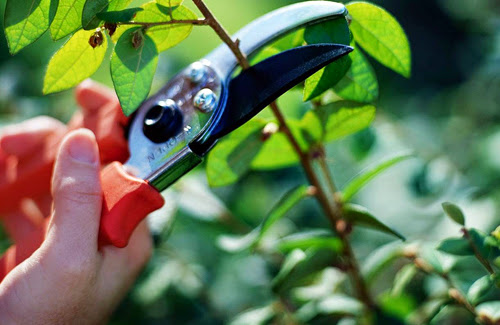Dead Head
When my sister told me she was going to “dead head” I was
confused. Ruling out the possibility of attending a Grateful
Dead concert, I had to ask what that meant. She explained that dead heading is a process of removing
dead flowers from plants to encourage new blooms. Made sense, I do that on a
regular basis (but didn’t know the technical term).
The same process is used when trees cease to produce fruit;
the gardener prunes the non-producing limbs to stimulate new growth.
Jesus’ parables often involved agricultural references,
since His audience was very familiar with planting, farming, and gardening. For example, He
referred to Himself as the Vine, those who followed Him as the branches, and His
Father as the Gardner. He stressed the importance of staying in relationship
with Him because only branches that remain in the Vine are capable of producing
fruit. No branch can bear fruit once it is cut off (John 15:5). The very fact
that He commanded “remain in Me” indicates that it is within our ability to do so. Furthermore,
Jesus stressed that every branch that does not bear fruit will be cut off by
the Gardner and those which do bear fruit will be pruned (which although uncomfortable, is necessary).
But what is this “fruit” and how is it produced? Let’s look at what is required first. Obviously, water is essential. It does not
take long for something to die without it. Jesus promised that by coming to
Him, we would receive “Living Water” (John 4:10; 7:8). Almost five hundred
years earlier, God said through the prophet Jeremiah, “My people have committed
two sins. They have forsaken Me, the Spring
of Living Water and have dug their own cisterns (Jeremiah 2:13; 17:13), because
they were relying on their own efforts rather than on Him to meet their needs.
The condition of the soil is also an important factor. In what
is known as the Parable of the Sower (Matthew 13), Jesus explained that His Word
is “Seed” and if the seed falls upon rocky ground, it will not take root. But
who prepares the ground? Who tills it and knows when it is ready for the seed?
None other than God the Holy Spirit. The soil of our hearts can be softened by Him or
remain hard as clay.
To address the question of what the fruit is, I think the
Apostle Paul described it well in his letter to the church in Galatia: “but the
fruit of the Spirit is love, joy, peace, forbearance, kindness, goodness,
faithfulness, graciousness, and self-control” (Galatians 5:21-23). These
virtues are contrasted with those which are displayed in individuals whose
lives are not controlled by the Holy Spirit. Jesus said to produce fruit in
keeping with repentance (Matthew 3:8; Luke 3:8). It is only through repentance,
(literally, turning around and going the opposite direction) that God can do
His desired work in us that brings about good fruit. In addition to this, Jesus
said that it is by the fruit that one can recognize a false teacher, for “a
good tree cannot bear bad fruit and a bad tree cannot bear good fruit” (Matthew
7:18). So we are also called to become fruit inspectors, so to speak, in order
to avoid becoming deceived.
Finally, there will come a time for harvest (Matthew 13).
This will be a time when the farmer Himself sends His servants (angels) to
separate wheat from chaff – another common practice of that day when threshers
would sift through the gathered wheat to bring it into the store houses
(analogous to heaven in this parable). Until that time, God allows the two to co-habitat in the same field.
This is exactly why the Apostle Paul entreated the
Corinthians to “examine yourselves to see whether you are in the faith”. (2
Corinthians 13:5). Just as a good flower gardener examines and snips off the
“dead heads”, we should take a good hard look at our hearts and remove whatever
does not show the beauty of God’s Spirit within us.





Comments
Post a Comment
Your comments are welcomed and appreciated.